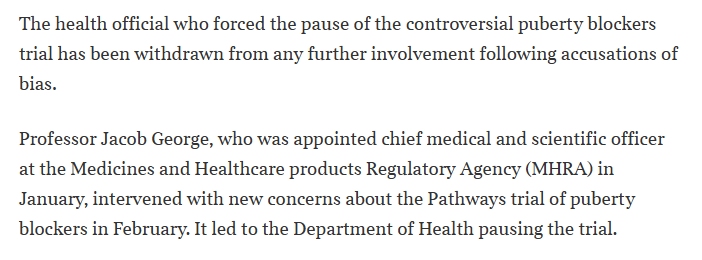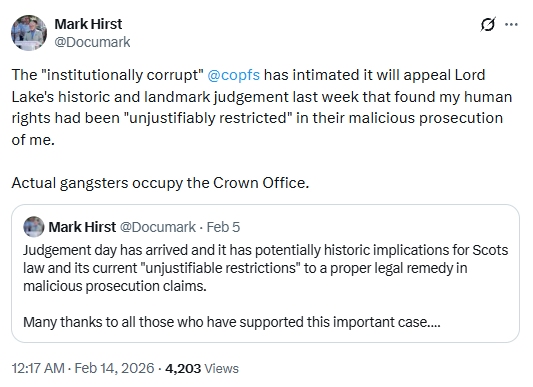PAPER TWO. THE DETERMINANTS OF INDEPENDENCE
This is the second paper in the Professor Alf Baird ten part series outlining the key determinants for achieving Scottish Independence. This paper centres on the importance of language. The idea is to broaden our understanding of all the factors involved and arm the YES side with an abundance of relevant fact to strengthen ourContinue reading "PAPER TWO. THE DETERMINANTS OF INDEPENDENCE"


This is the second paper in the Professor Alf Baird ten part series outlining the key determinants for achieving Scottish Independence. This paper centres on the importance of language. The idea is to broaden our understanding of all the factors involved and arm the YES side with an abundance of relevant fact to strengthen our case….in all environments!
2. LANGUAGE
“The most urgent claim of a group about to revive is certainly the liberation and restoration of its language. Only that language would allow the colonized to resume contact with his interrupted flow of time and to find again his lost continuity and that of his history. To this self-rediscovery movement of an entire people must be returned the most appropriate tool; that which finds the shortest path to its soul, because it comes directly from it.” (Albert Memmi)
The tenets of any society are founded on language, which is the ‘master tool’ representing and making its own culture. Language is what makes culture possible and without a people’s language the culture is lost for that people.
Languages are powerful political instruments, so powerful they may be viewed as a threat to national allegiance and identity. Language, culture and national identity intersect to form our belief in ‘who we are’. When a people become incorporated into a more dominant imposed language and culture that has subsumed them, they have then lost their heritage and identity, and hence lost their way.
Because language is the fabric of culture, when a language dies, the demise of the culture that gave birth to it becomes imminent. Language wanes not because of physical extinction, but because of cultural subsumption. To the indigenous Scots speaker, English gaes in ane lug an oot the ither and will never touch the heart and soul of the people in the same way the Scots language does: the ‘Scots (language)is a mirror of Scotland’s soul’, according to the writer Billy Kay.
The cause of language death is attributed to the marginalization of indigenous communities and the subordination of their languages, where the speakers of a culturally dominant language in a particular area or nation marginalize the speakers of minority languages. The Scots language is a minority language in Britain and has now been made a minority language in Scotland; according to the 2011 census just 1.6 million Scots speakers remain, less than a third of the Scottish population. This is a consequence of the Scots language being marginalised in Scotland through Anglophone domination and a refusal by UK and Scottish governing institutions to teach the language in Scotland’s schools, despite repeated requests by the European Council for the Scots language to be taught based on rights under the European Charter for Regional or Minority Languages.
The United Nations Declaration on the Rights of Indigenous Peoples Resolution (Article 14) holds that aboriginal languages should be treated as fundamental rights and that: ‘A mother tongue is a human birthright.’ This means the Scots language should be respected and protected but even more important it needs to be taught! If a language is not taught to new generations, it will be lost.
Depriving a child of their language at the ‘sponge’ time of life, the most precious learning years, means a cultural bond is broken. Scotland’s bairns go into Anglophone dominated classrooms and have their own language squeezed out of them, often by teachers who themselves have little or no knowledge of, never mind qualification in, the Scots language. An Anglophone hierarchy is linguistically programmed to consider Scots speakers as less articulate than them, reflecting the prevailing view of Scotland’s social institutions that the Scots language is not a ‘valid’ language, which is linguistic prejudice and ethnic discrimination.
It is accepted almost universally that the English language is useful for communication, however, language is far more than merely a means of communication; language is the principle means by which humans can claim diversity and define their identity. To preserve language is also an effort to preserve a people and their unique heritage and culture, as well as their national identity. By ignoring and marginalizing the Scots language, a consequence of Linguistic Imperialism and linguistic policy of an Anglophone elite hegemony running Scotland, this means Scots speakers are made subordinate, their Scottish culture is being replaced, and with Scottish identity and therefore national consciousness diminished.
Scots speakers are therefore discriminated against (from birth)in their own nation and continually disadvantaged throughout life by prevailing Anglophone language domination and prioritisation. Scots language discrimination results in inequality and the so-called ‘attainment gap’; many Scots speakers are left behind, considered as inferior and less articulate, discarded by an Anglophone elite, many of whom are not Scots yet who control Scotland and its social institutions. This ongoing linguistic discrimination ‘introduced a schizoid element into the national psyche’,according to Dr. David Purves, with significant adverse psychological effects.
Scots have a right to a ‘Scots Language Act’ to end linguistic oppression and discrimination and to respect and reinstate the unique irreplaceable connection between their culture and language. The Sapir–Whorf hypothesis states that the way a people think and view the world is determined by their language, and culture and language are undeniably intertwined. Yet, with just 1.6 million Scots speakers left in Scotland, the number of speakers will inevitably fall further if the language is not taught. Coincidentally this is also the same number of ‘Yes’ voters in the 2014 referendum, highlighting the significance of language in the development of culture, identity and national consciousness, and a key driver in the self-determination of any people.
Language is one of the main factors that serves to define and unite a nation, reflecting the fact that language gives people their identity. Take away a ‘peoples’ language you take away their identity, which is the brutal objective of Cultural Imperialism and colonial oppression.
For centuries the Scots language has been ‘scorned as the language of a backward people’. British linguists and educators responsible for developing language policy (e.g.Bernstein; Bunting) stressed the ‘verbal-deficit perspective’claiming that anyone who does not use standard English is verbally deficient, has less prospect of academic advancement, and does not even have a ‘valid’ language. Educationalists clearly still believe that Scots is not a ‘valid’language, for if they thought otherwise then they would surely teach the language.
The inevitable (and intentional) outcome of prevailing language ‘policy’ in Scotland is that an Anglophone elite hierarchy dominates Scotland’s social structures, including education at all levels. Social structures and institutions are language created hence an Anglophone narrative defines and determines Scotland’s society and purpose, which by implication is also anti-independence. In this environment thestereotypical way Anglophone elites, broadcasters and educators depict the Scots language as the language of the gutter and of the lower classes amounts to ethnic discrimination.
The Scottish working and rural class are basically all that is left of Auld Scotia in respect of the Scots language and are therefore the final guardians of Scottish culture and identity. We might consider how a Scots language narrative, flowing naturally and unhindered, would help re-shape and strengthen the identity and culture of the Scottish people. One could surmise the ‘Yes’ vote in support of Scottish independence would be expected to rise somewhat if more Scots appreciated that they had their ain braw langage.
The socio-political importance of language is well-established. Madeiros (2017) asserts that: “it is linguistic perceptions that directly determine national attachment”. Scots speakers therefore tend to hold to a Scottish identity, Anglophones less so, as seems apparent in the Scottish independence debate and in voting outcomes where the Yes/No divide is to a large extent linguistic and hence cultural. This is nothing new: minority and ‘national’ or ethnic groups in conflict are invariably separated along linguistic lines and Scotland seems no different in a British context.
Quebec and Canada represent a divide between a Francophone Quebec and an Anglophone Rest of Canada (RoC). Francophones tend to have identification with Quebec and show a positive and significant relationship with support for secession whilst Anglophones mostly oppose independence. Identification primarily with Scotland is the same for Scots speakers who comprise by far the dominant group supporting independence, reflecting the fact that national identity and culture are linguistically determined, whereas the anti-independence ‘No’ vote includes a significant and perhaps now a majority Anglophone element, the latter reflecting Scotland’s changing demographics.
In Quebec the elite is predominantly Francophone, whilst Scotland’s elite class is mainly Anglophone. This is largely because the Scots language is not made a linguistic requirement in Scotland, whereas the French language is compulsory in Quebec, as is English. If the Scots language were given authority and made a linguistic requirement in Scotland (as well as English) it might therefore be anticipated that the elite in Scotland would consist more, or perhaps predominantly of Scots speakers. Inequality and under-development of the Scottish people (and nation) due to socio-linguistic prejudice thus favours an Anglophone elite so long as the Scots language has no authority and is not taught.
A consequence of Linguistic Imperialism is that the Scots-speaking community are largely excluded from taking elite posts within Scotland’s social institutions and are therefore ‘doun-hauden’ (oppressed) through institutionalised language discrimination and Anglophone elite domination. Scotland’s high-level jobs are advertised primarily in the London Metropolitan press and are therefore aimed at an elite Anglophone labour market in rest-UK which is ten times larger, and with no Scots language requirement for any post in Scotland. This has resulted in ‘an ethnic division of labour within the UK’s internal colonialism model’, according to Professor Michael Hechter.
A direct consequence of linguistic-based marginalization and discrimination is the ‘Scottish Cultural Cringe’, which is a psychological impediment suffered by Scots resulting in a lowering of confidence and self-esteem. Yet English is not the natural language of Scots, it is a foreign language reflecting another culture and identity. With solely an English language (and culture) imposed on Scots who are intentionally deprived of properly learning their ain mither tongue, the aim is to diminish notions of Scottish national identity and to encourage assimilation to a ‘superior’ British national identity, and to impose an Anglophone cultural hegemony; this is the purpose and consequence of Cultural and LinguisticImperialism and colonialism.
Loss of language inevitably follows the loss of sovereignty and is a common theme in colonialism. As Professor Robert Phillipson noted, English Linguistic Imperialism is: ‘..the dominance asserted and retained by the establishment and continuous reconstitution of structural and cultural inequalities between English and other languages’. Linguistic Imperialism is a sub-type of Cultural Imperialism which permeates all other types of imperialism, including colonialism, primarily because language is the means used to mediate and express them. In colonial societies ‘linguistic underdevelopment parallels economic and political underdevelopment’, which implies that it is not only the Scottish people who are ‘doun-hauden’ (oppressed) through Anglophone domination, it is also the social, economic and political development of the Scottish nation that is hindered.
Hierarchisation of languages also brings with it a rejection of authentic local values and their substitution of ‘different’values which reflect the dominant language group. This serves to strengthen the elite language group’s social stratification resulting in a segregated society reflecting class, status and power, all of which are distinguishable by language and culture. This in turn further limits potential for social mobility and serves to worsen inequality for indigenous Scots speakers.
In summary, Scots are ‘doun-hauden’, their marginalization and inequality perpetuated and reinforced through an imposed Anglophone elite structured society and related socio-linguistic prejudice and cultural domination. This is the inevitable outcome of Cultural and Linguistic Imperialism and colonialism which involve prejudice, ethnic discrimination, exploitation and worse, and which rightfully gives rise to demands of ‘a people’ for independence, to restore their national sovereignty and to enable them to recover and build upon what Albert Memmi described as ‘a moribund culture and a rusted tongue’.
The Scots language is therefore a key determinant of Scottish independence.
BEAT THE CENSORS
Unfortunately a number of pro Indy sites have turned out to be merely pro SNP sites and have blocked a number of bloggers, including myself. We have managed to frustrate these efforts to close us down through our readers sharing our articles and building our audience. In addition many have taken out free direct subscriptions. I very much appreciate this support.
Free Subscriptions
Are available on the Home and Blog pages of this website. By taking out a subscription you will receive notification of all future posts. You will be most welcome.


What's Your Reaction?










































